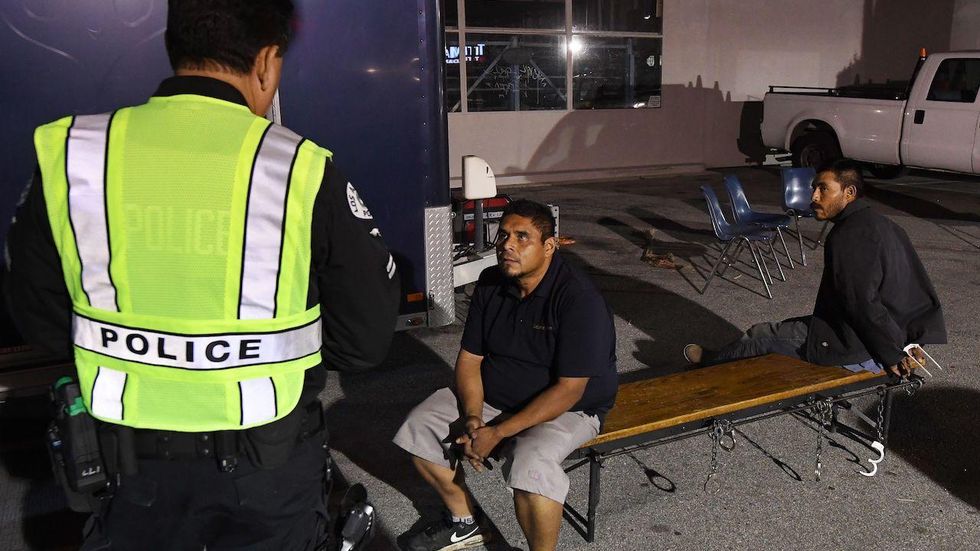
The U.S. deported more than 53,000 Mexican nationals — a 40 percent increase over the same period last year — in the first quarter of 2018, according to Mexican government data. (Mark Ralston/AFP/Getty Images)

Deportations from the U.S. to Mexico have jumped during President Donald Trump's second year in office.
The Associated Press reported that Mexican government data showed a spike of 40 percent during the first quarter of 2018 over the same period last year. From January to March, 53,764 Mexicans were deported, according to the data.
Stopping illegal immigration was among Trump's campaign promises during his bid for the presidency.
U.S. Customs and Border Patrol apprehended nearly 311,000 illegal immigrants in 2017 overall and has taken more than 215,000 into custody this year to date, according to statistics released Wednesday.
The Border Patrol stopped nearly 200,000 inadmissibles from entering the country illegally during the president's first year in office, down from about 275,000 in 2016.
"Overall removals are down (in 2017) because the border is under better control than it has been in 45 years,” Thomas Homan, deputy director of ICE, said at a news conference in December.
Immigrant advocacy groups have criticized the Trump administration for its stance on immigration, but now Mexican officials are being condemned for not doing more to help reassimilate deportees back into its country.
“Mexico’s neglect of reintegration isn’t new; the same was true after mass deportations during the Great Depression,” Alexandra Delano Alonso wrote recently in an Op-Ed in the Los Angeles Times. “Still, the current wave of deportations has been underway for years, and the needs of the thousands of people returning each week are clear. They need identification, housing, education, job placement and physical and mental health services.”
Some claim it's unsafe for them to return to Mexico for various reasons including their criminal history.
“The Mexican government has been keen to look only in the direction of those who have gone north — and who support millions of families with the remittances they send home,” Alonso said. “It is time Mexico shows the same concern for those crossing back into Mexico, including reducing the inequalities that pushed them to leave in the first place.”